
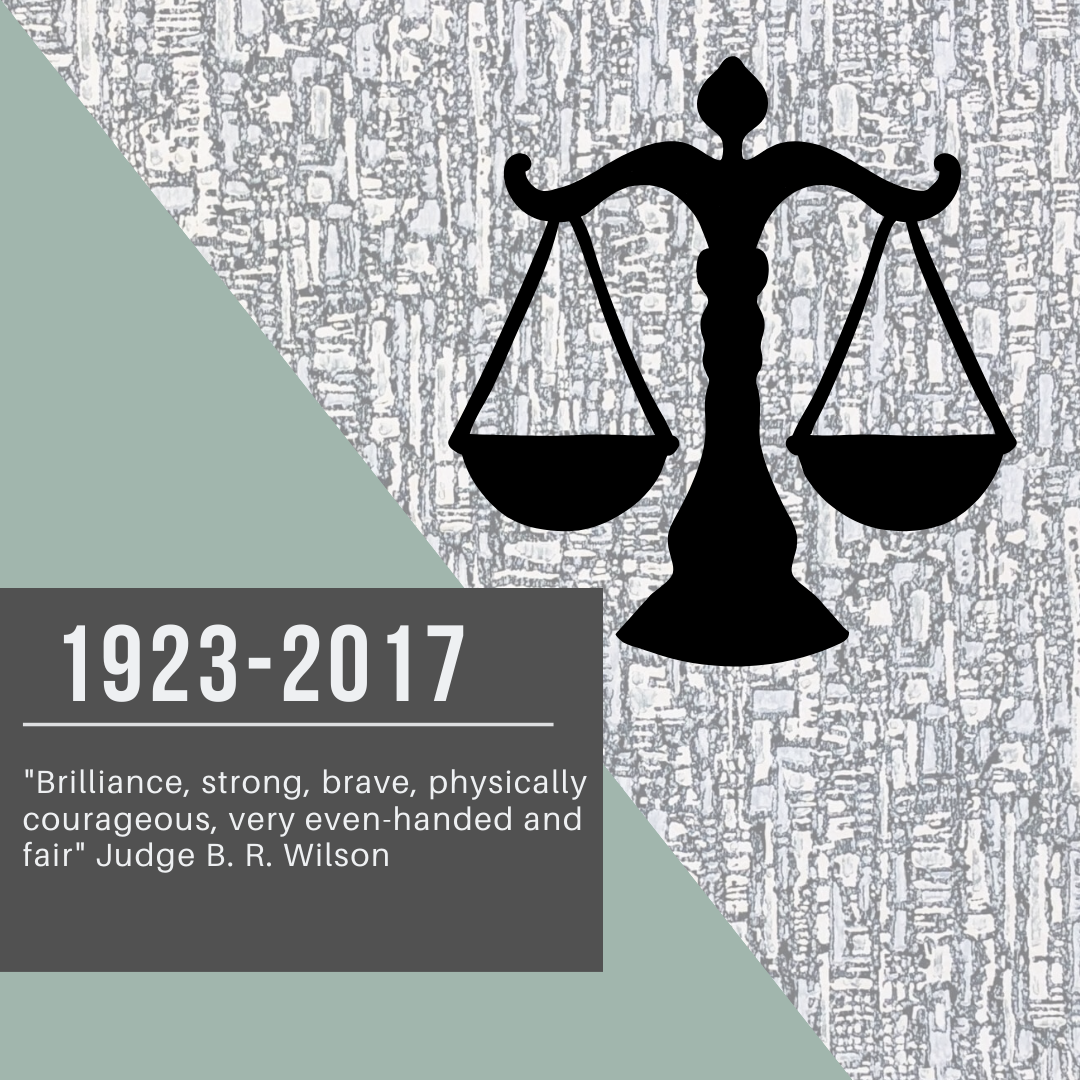
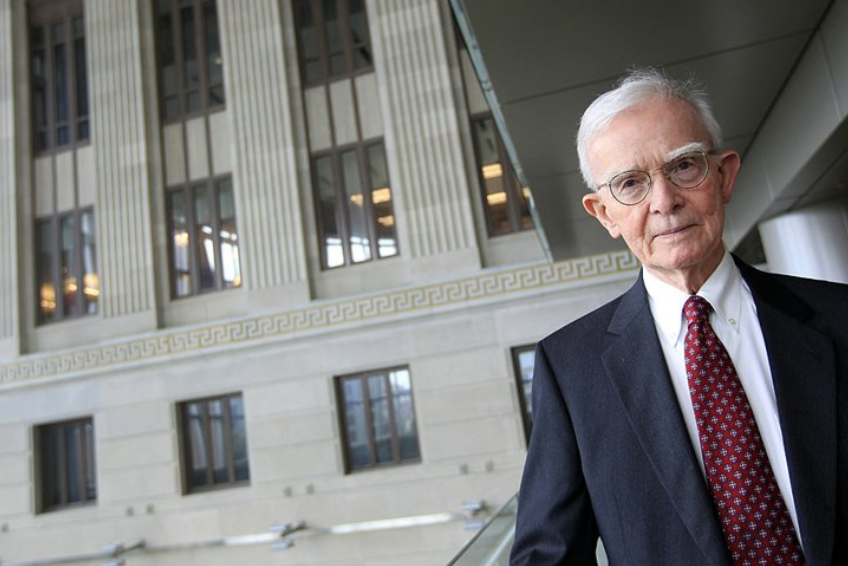
G. Thomas Eisele Research Fellowship
The University of Arkansas at Little Rock awards each year to undergraduate, graduate, or faculty members a fellowship in honor of Judge G. Thomas Eisele.
The purpose of the award is to promote and support research projects which highlight the role of the federal judiciary in Arkansas and how it has impacted local and state politics, history, and culture. Previous decisions and rulings, and the ways they have shaped the current government or state culture, and projects that research Arkansas's role in the national or international judicial field are also eligible.
The award provides a stipend to support the purchase of books, materials for research, equipment or travel.
Previous recipients include two UA Little Rock Faculty members John Kirk and Marc D. Glidden.
Funding is made possible by the G. Thomas Eisele Endowment for the study of the United States Federal Courts in Arkansas through the University of Arkansas at Little Rock.
For more information and instructions on how to apply, click here!
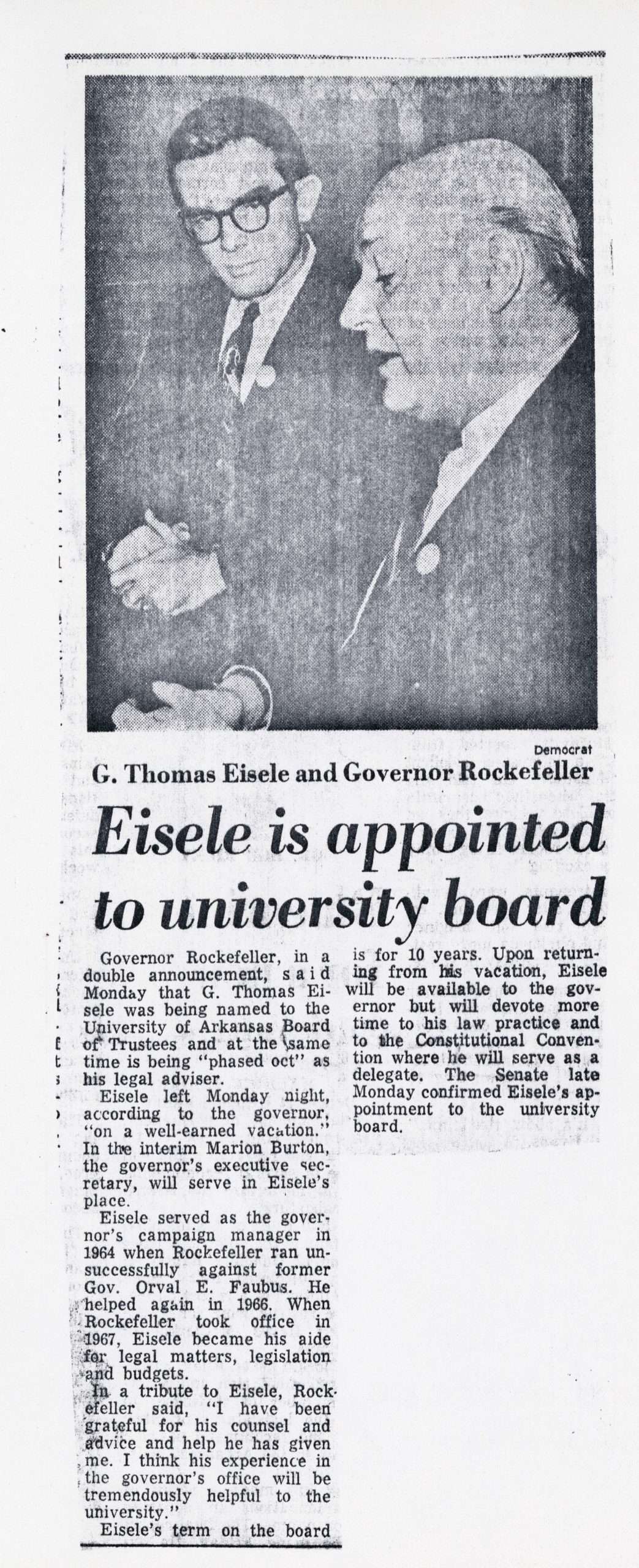
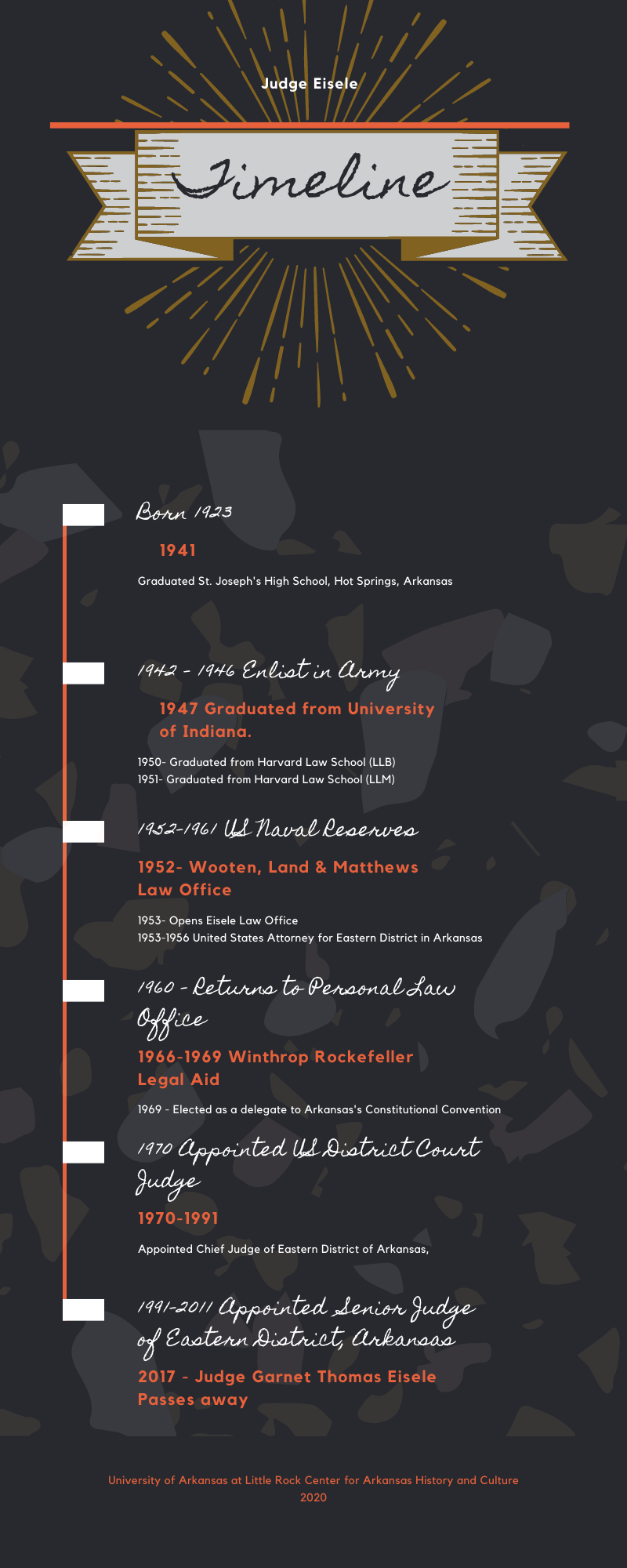
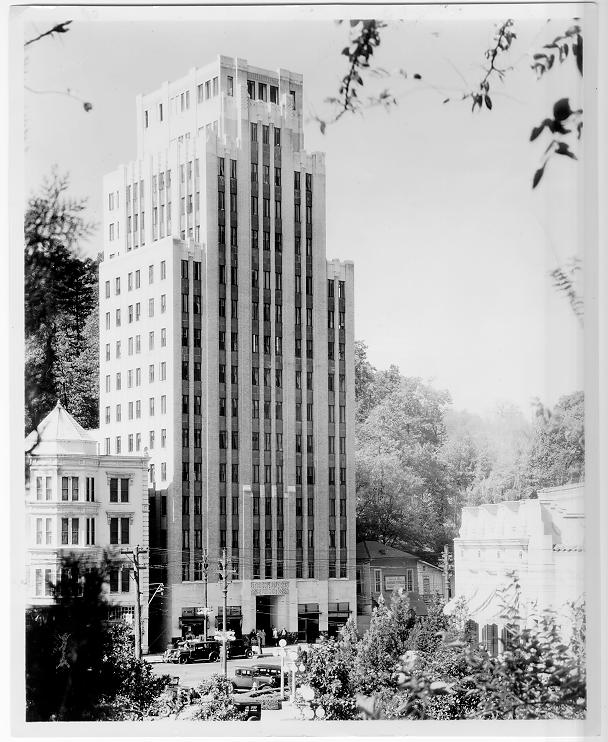
Image of Medical Arts Building provided by the National Park Service's Archives at the Lamar Bath House.
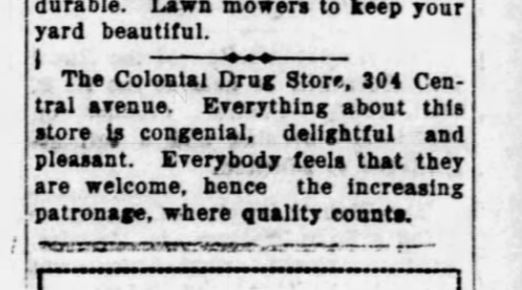
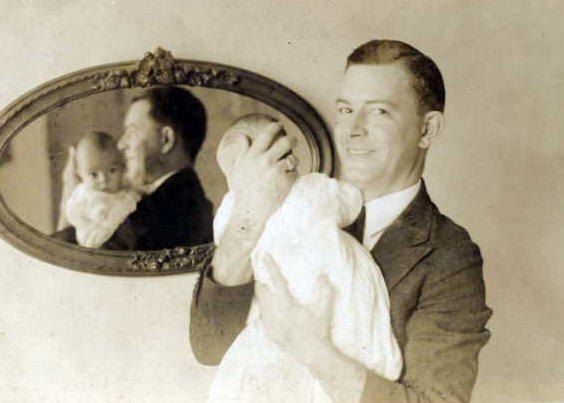
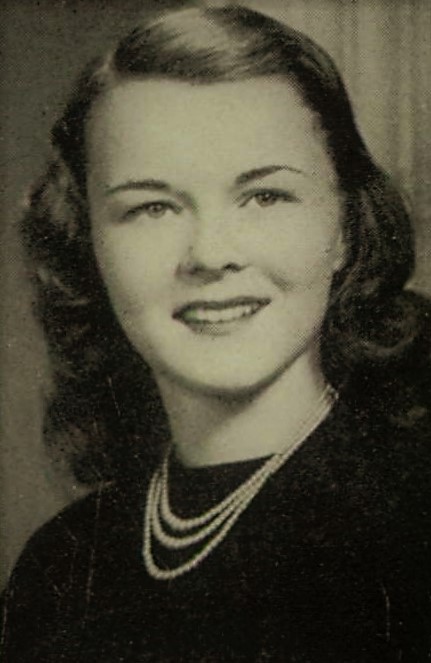
Tom's Early Years
Judge Garnet Thomas Eisele was born on November 3rd, 1923 to Mary Keely Martin and Garnet Eisele, the second of two children. His childhood was spent in Hot Springs, Arkansas. Working as a pharmacist, his father was able to provide a comfortable upbringing for him. Young Tom attended a local catholic school named St. John’s, graduating in 1941.
Judge Eisele was exposed to politics at an early age. Both his maternal and paternal grandfathers were both involved in local and national politics, one working with the Republican party and the other for the Democratic Party.
His grandfather W. H. Martin, a confederate veteran and later a lawyer also, worked with the Democratic Party as the National Committeeman. Martin was also elected as a delegate of the Arkansas Constitutional Convention of 1917. Just like his grandson, he served as the U. S. Attorney for the Eastern District of Arkansas.
Judge Thomas's paternal grandfather, Martin A. Eisele worked as a pharmacist, passing the trade on to his son. Together they worked at the Colonial Drug Store in Hot Springs, Arkansas. Eisele supported the Republican party, so much so that he attended 50 consecutive years of Republican National Conventions until he passed at the age of 92 in 1944.
These two early influences may be responsible for his work with and passion for politics and law over his life.
In 1950 Eisele married Kathryn Freygang. The couple enjoyed 60 years of marriage, and had 4 children together.
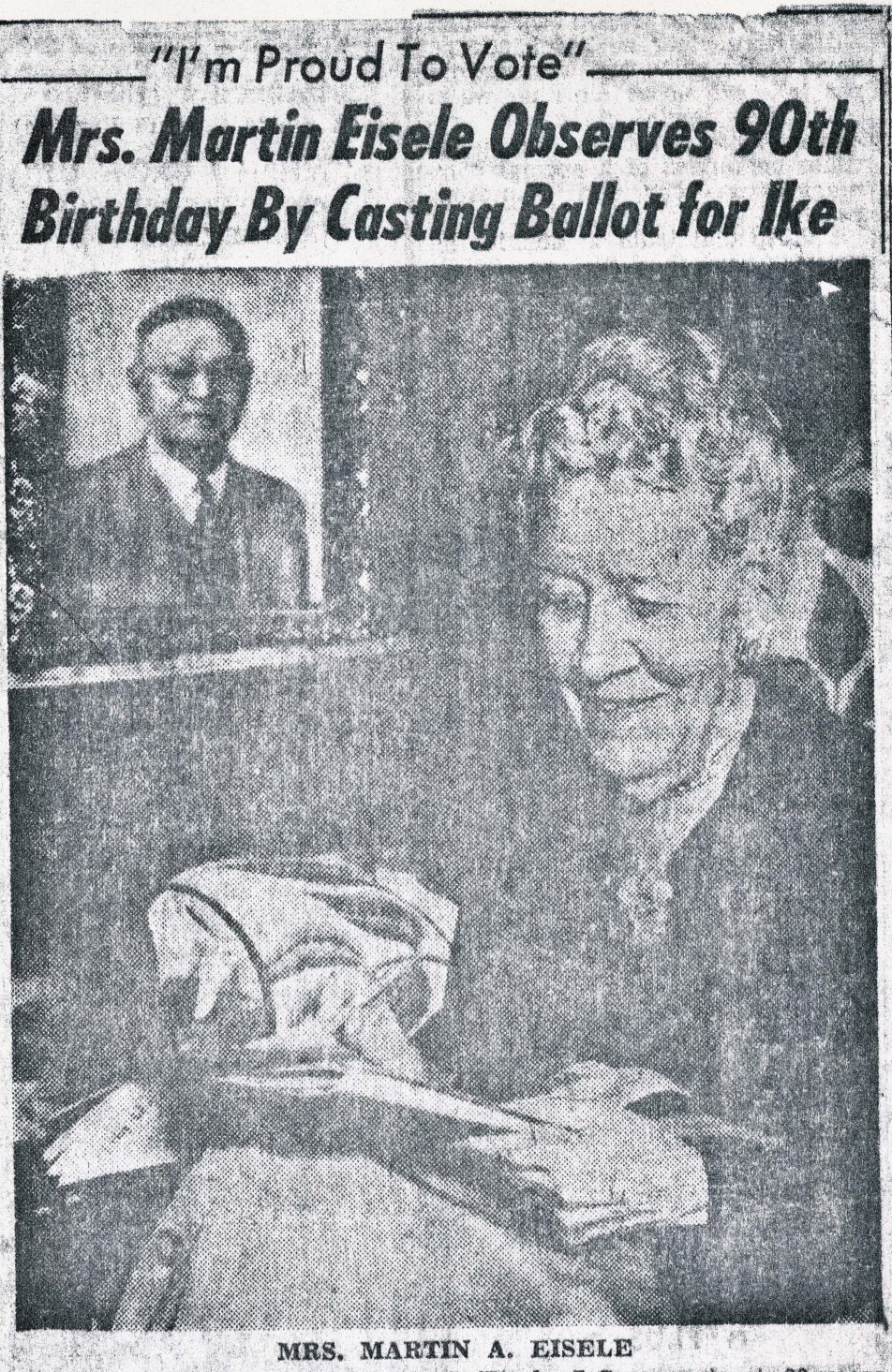
Education
After graduating from St. John’s school in 1941, Eisele enrolled at the University of Florida. With the second world war raging, Tom decided to enlist so he “wouldn’t miss out.” He took a break from school to serve as a soldier in the U.S. Army between 1942-1946. He returned home after serving abroad in Germany, finishing his bachelor’s degree at the University of Indiana in 1947.
From there he went on to Harvard Law school earning his LLB (1950) and LLM (1951).
Rockefeller would nominate Eisele to the UALR Board of Trustees, where the Judge would serve a ten year term. The judge would work with Rockefeller during the time which the Little Rock Junior College transitioned to the University of Arkansas System.
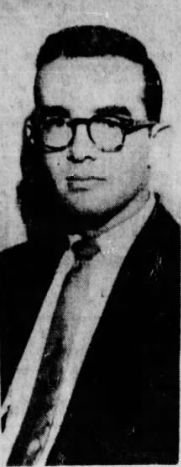

W. Rockefeller & Politics
During 1966 to 1969, Tom Eisele worked as Winthrop Rockefeller's (W.R.) legal advisor, pulling a annual salary of $1. While the pay was laughably small and arguably ceremonial, the position took up a large portion of his time.
W.R. relied on Eisele's help for drafting legislation, helping to prepare for legislative sessions, answering legal questions about staff and government administration and other tasks as assigned. Although he provided a significant service to the campaign and governor's office, it was all done as a private citizen and never a state employee.
Tom Eisele's close connections to the Governor granted him a degree of influence. The Baxter Bulletin on February 8th 1968 called him the most “powerful voice in the governor's inner circle of advisers.” He appeared in newspaper interviews, radio, and on TV interviews for the governor.
He had a radio series called “Issue of the Day” which covered issues related to the 1964 election.
Eisele was elected as a delegate to the Arkansas Constitutional Convention in 1969, becoming the second in his family to serve as a constitutional delegate for the state of Arkansas.
Judge Eisele worked with Tom Murton and W. Rockefeller on Prison reform (Tucker & Cummins Prison Farms especially) during the late 1960's.
The horrific conditions in the Tucker and Cummins Prison Farms were a sensitive subject and source of political tension in Arkansas during this time. State and national press coverage of the situation reported on the "trusty" system used in the prison farms, and Rockefeller's efforts to stop corruption, abuse, and neglect.
For a sense of the social, cultural, and political impact of the reform's work, this movie trailer for Brubaker is a useful example.
Although Eisele's work was mostly out of the spotlight, his contributions to Rockefeller during this time were invaluable.
Governor Rockefeller, Eisele, and their team sought to reform work and living conditions, and eventually restructuring the prison system into modern day Arkansas Department of Corrections. Together they made sure people under the care of the Corrections Department had access to medical care, proper food, shelter, and were treated humanely.
For more information about prison farm conditions and reform in Arkansas:
Cummins Farm Article on the Encyclopedia of Arkansas
Tucker Farm Article on the Encyclopedia of Arkansas
Arkansas Department of Corrections Article on the Encyclopedia of Arkansas
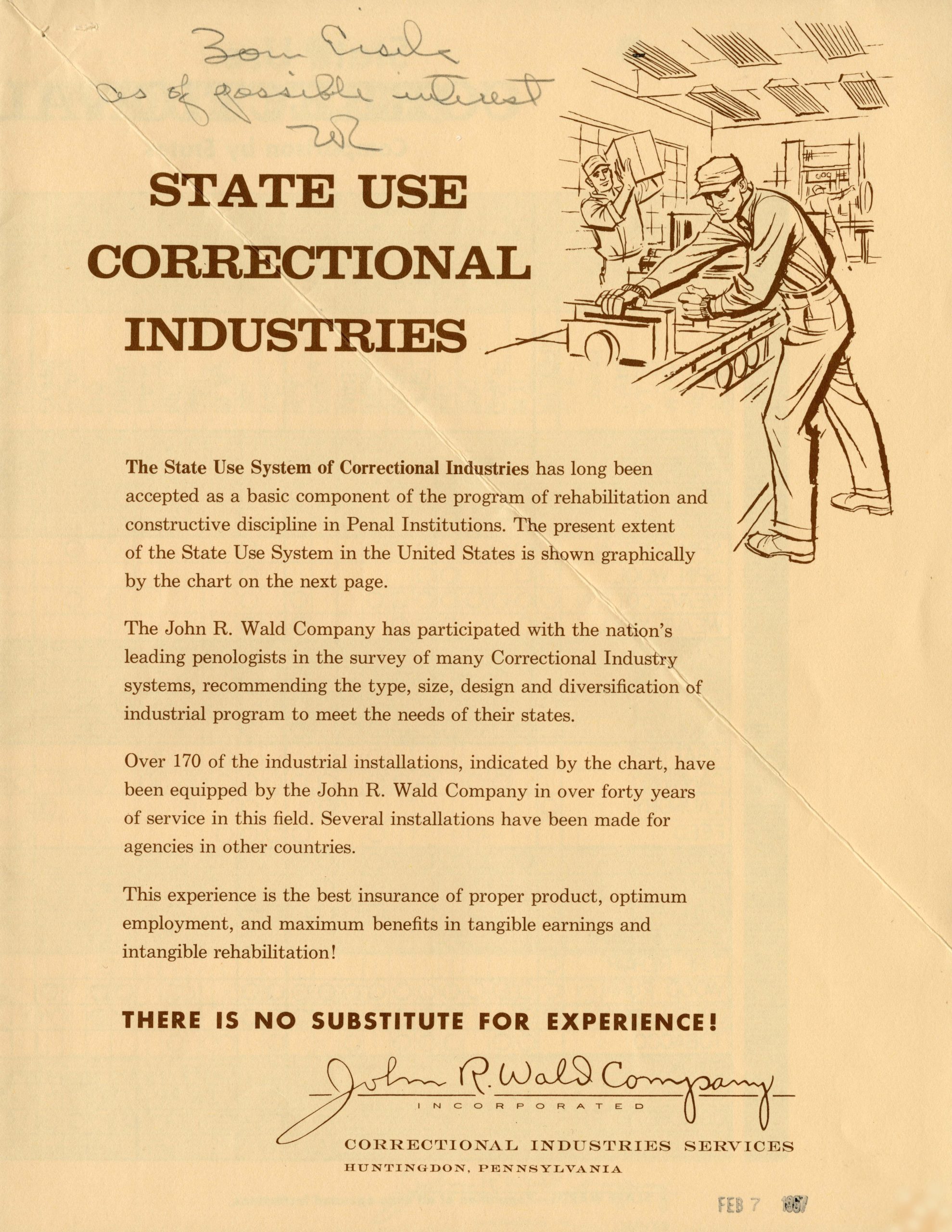
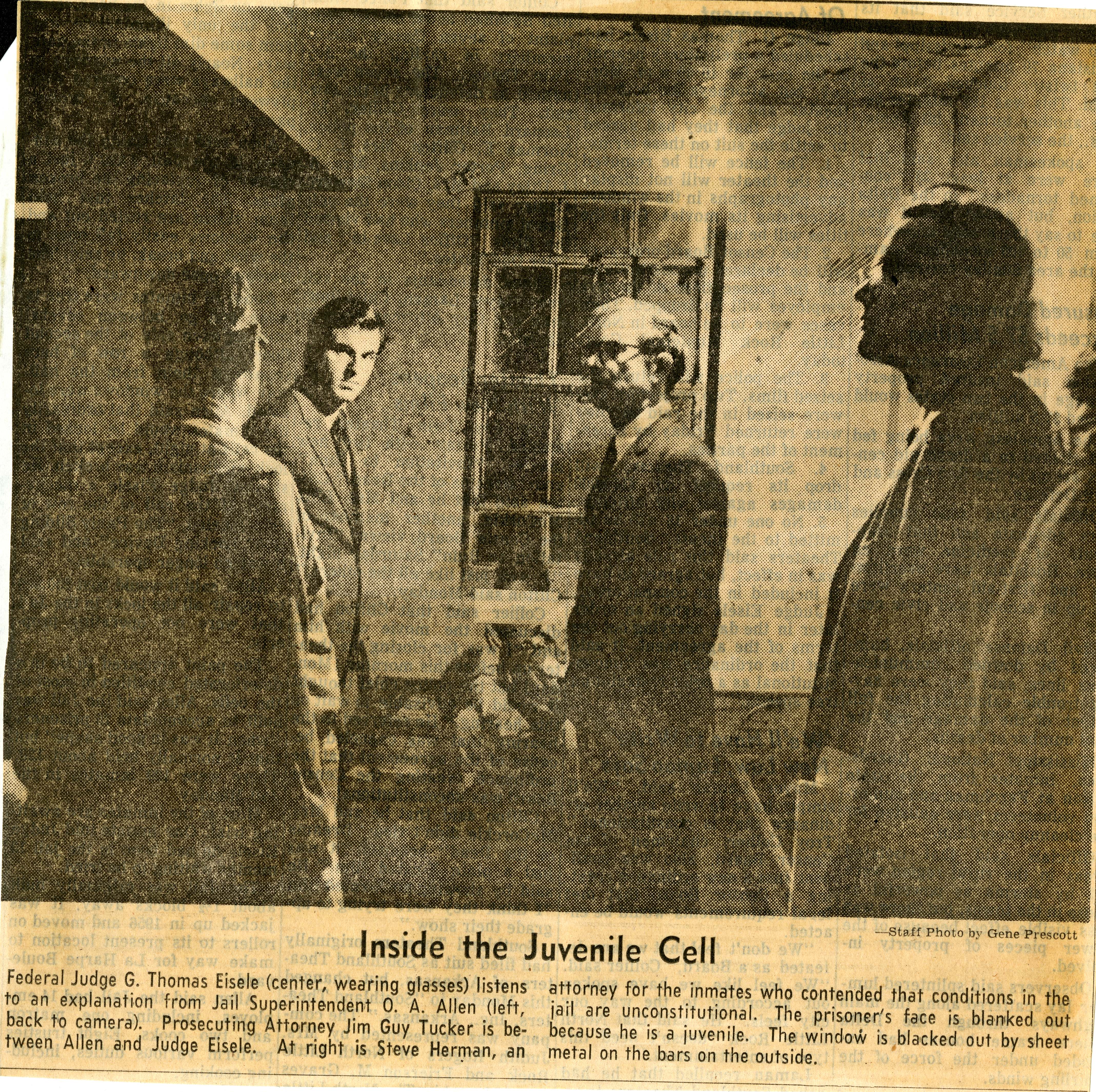
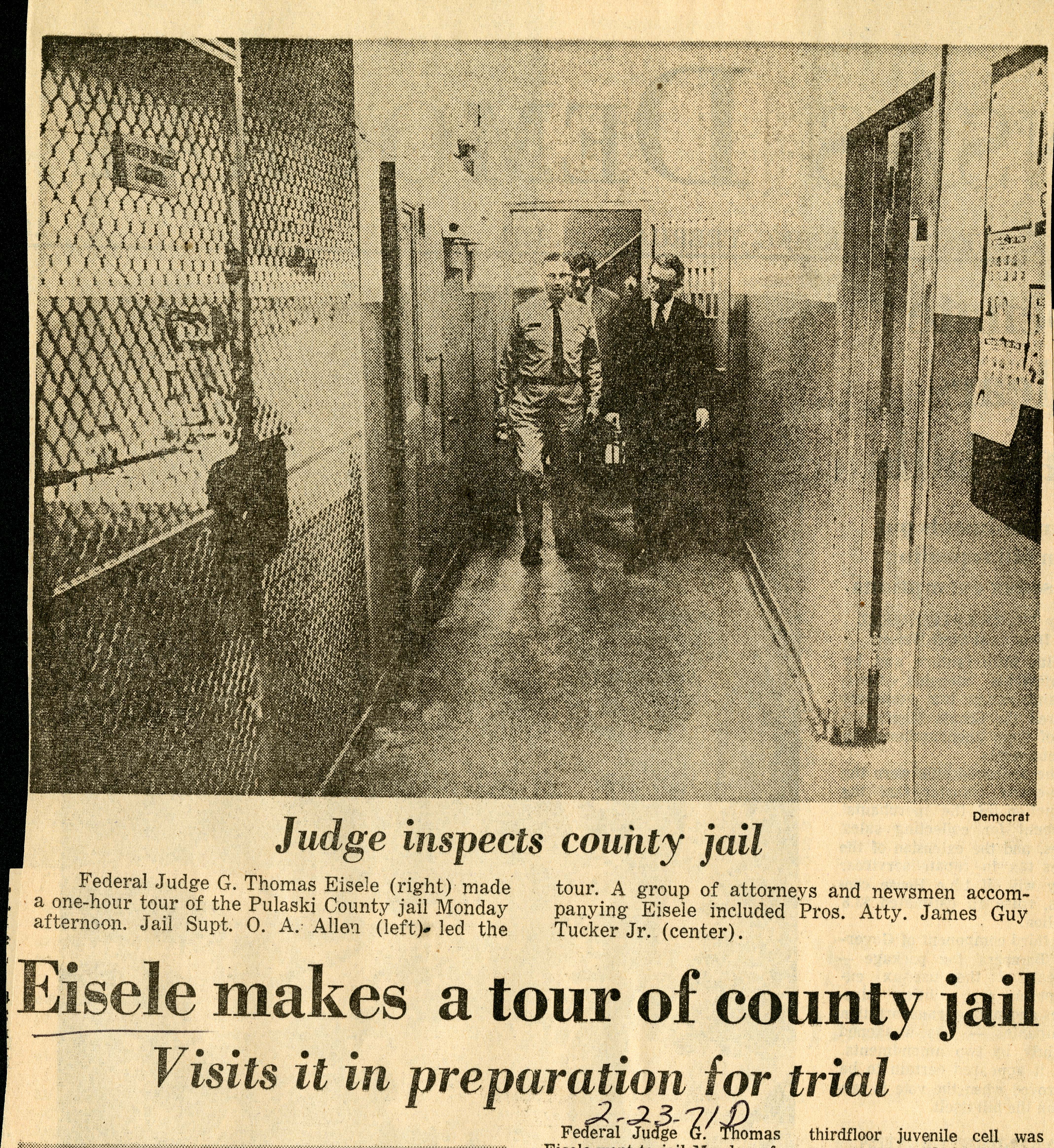
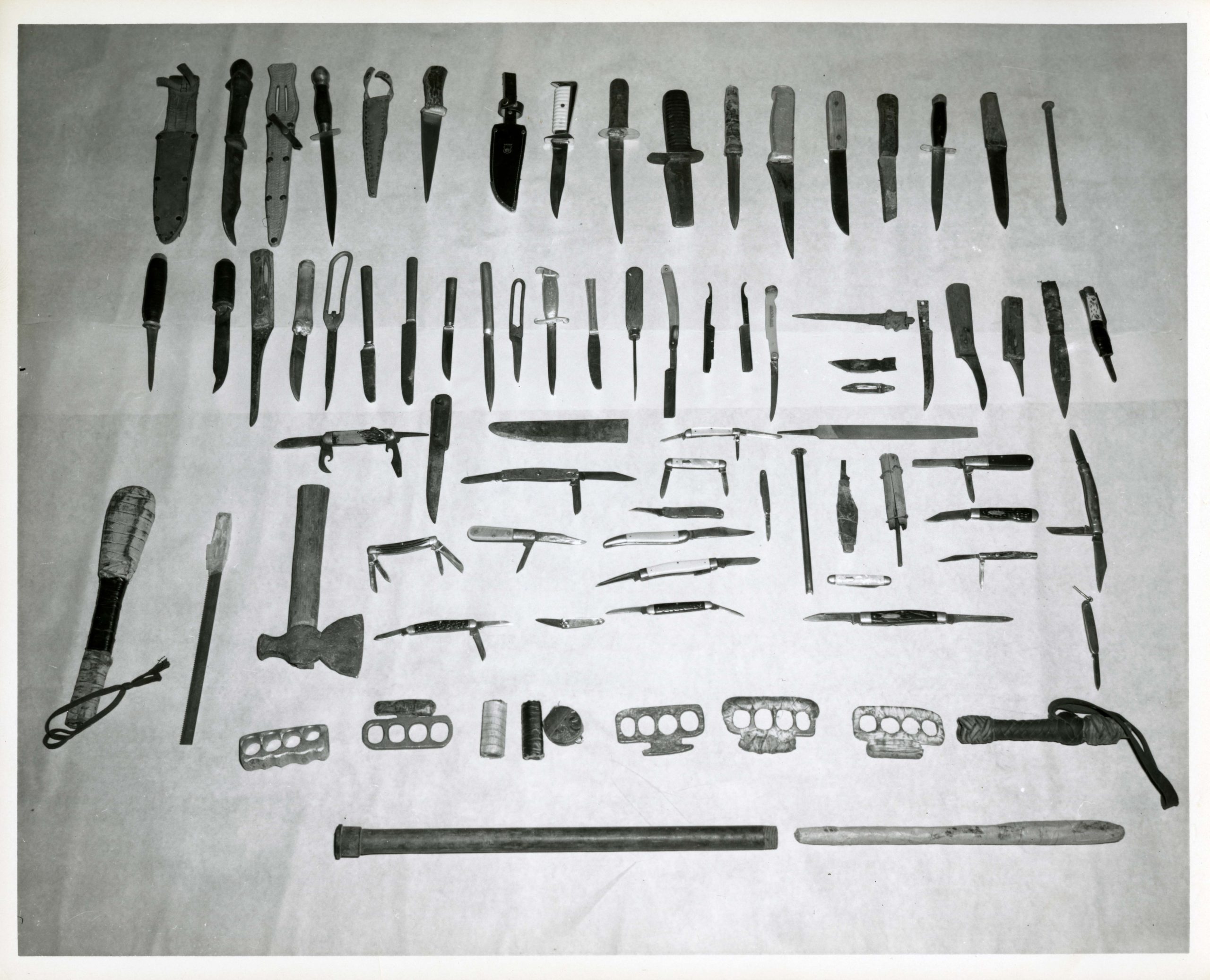
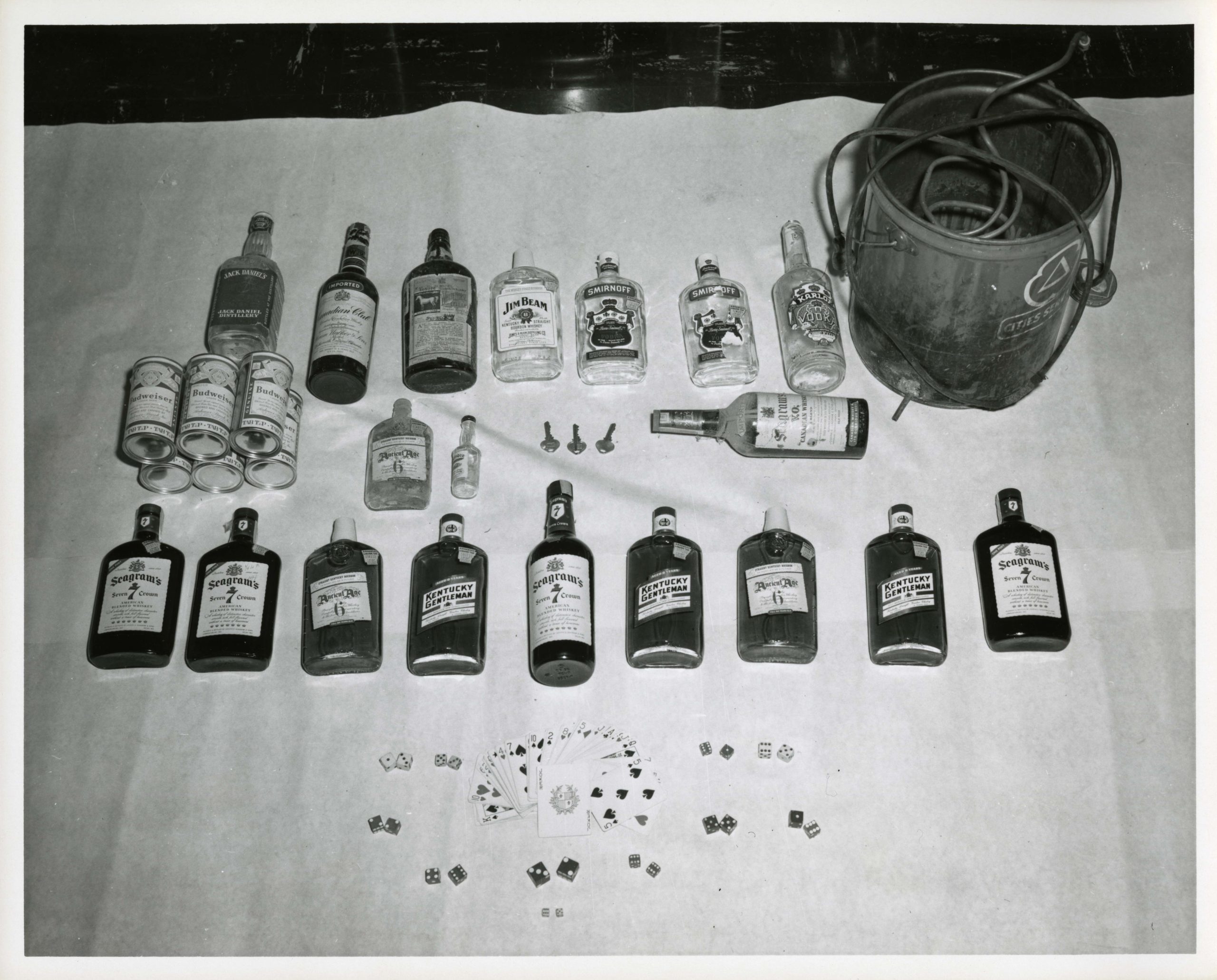
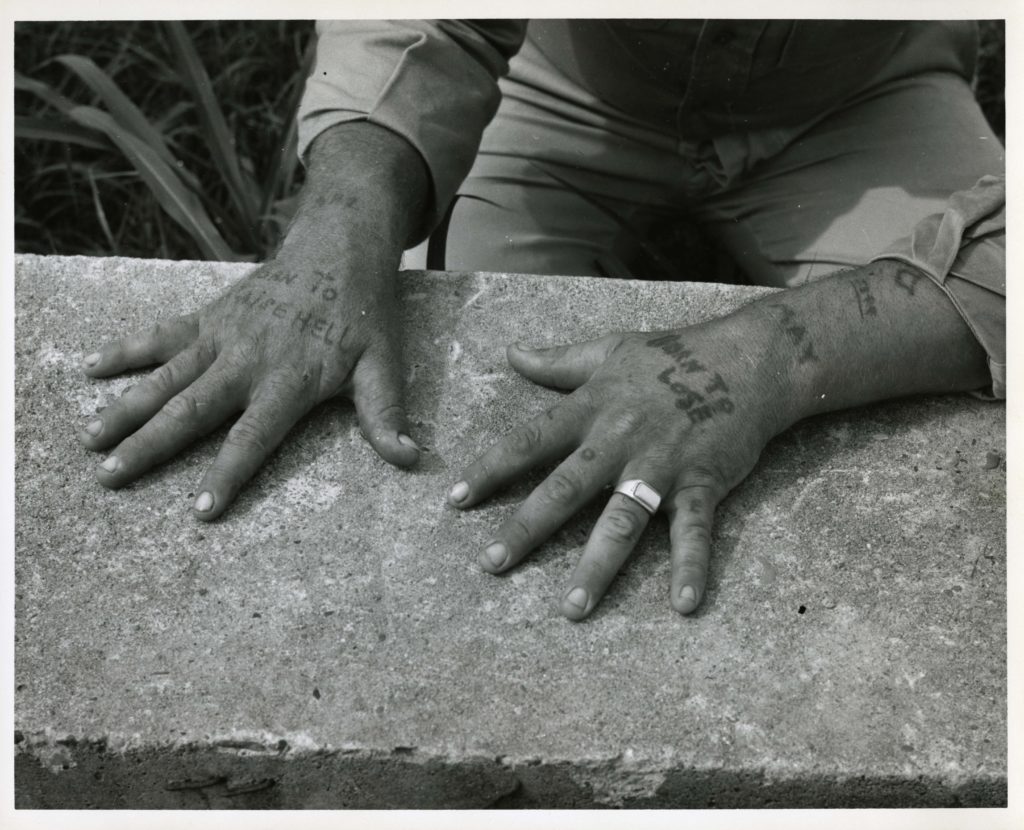
Law & Judicial Work
- 1951-Garnet Thomas Eisele passed the bar and was admitted to practice law in the state of Arkansas.
His first work in a law firm was with the company Wootton, Land & Matthews. After working with them for a year, he set out on his own and opened his own office in 1953. Eisele tried criminal and civil cases in his law firm until around 1956 when he joined on with the Owens, McHaney, Lofton & McHaney Law Office.
He remained for about four years, working on business and corporate legal cases, the majority of focused on bond claims, disability, insurance companies, and defending personal injury claims.
- 1960-Eisele moved to the Tower building in Little Rock, Arkansas and opened his own law practice again. During this time, cases centered around appeals to the Arkansas Supreme court, trials in the State's Chancery Court, and the Circuit Court. Often, he was hired to represent people going through divorce, criminal charges, probate cases, and tort actions. Judge Eisele was chosen to represent the Republican party in 1964 for a case which established the ability of an individual to examine, copy, and inspect public records.
From there, he moved his office to 332 National Old Line Building in Little Rock.
From the very start, Judge Eisele earned and kept the highest rating from Martindale-Hubbell, and had an "AV" rating since 1961.
- 1970-US District Court Federal Judge for Eastern District of Arkansas, Nomination by Richard Nixion
- 1970-1991-Chief Judge for Eastern District of Arkansas
- 1991-2011-Senior Judge of Eastern District of Arkansas
- 41 Years as District Judge of Arkansas’ Eastern District
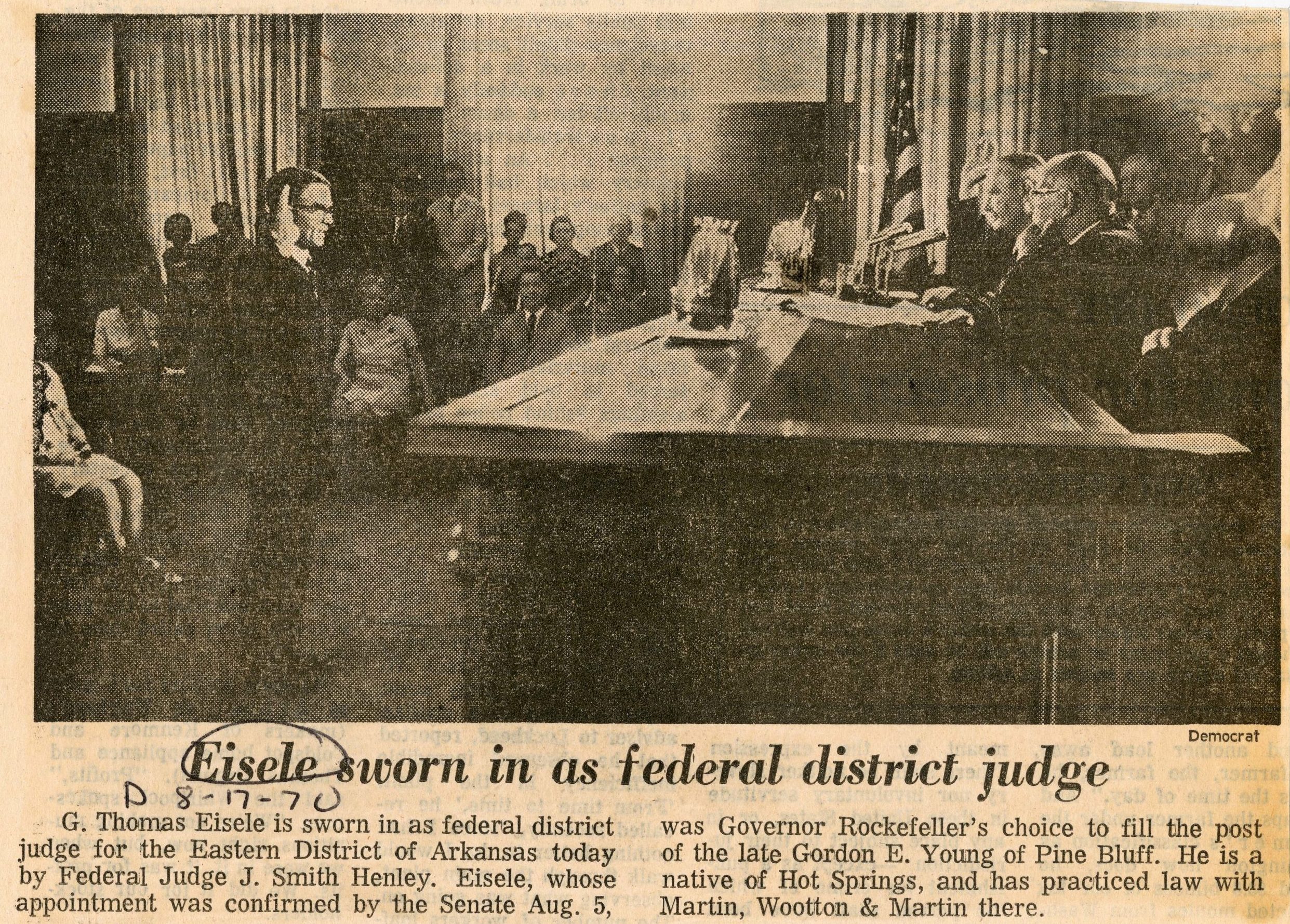
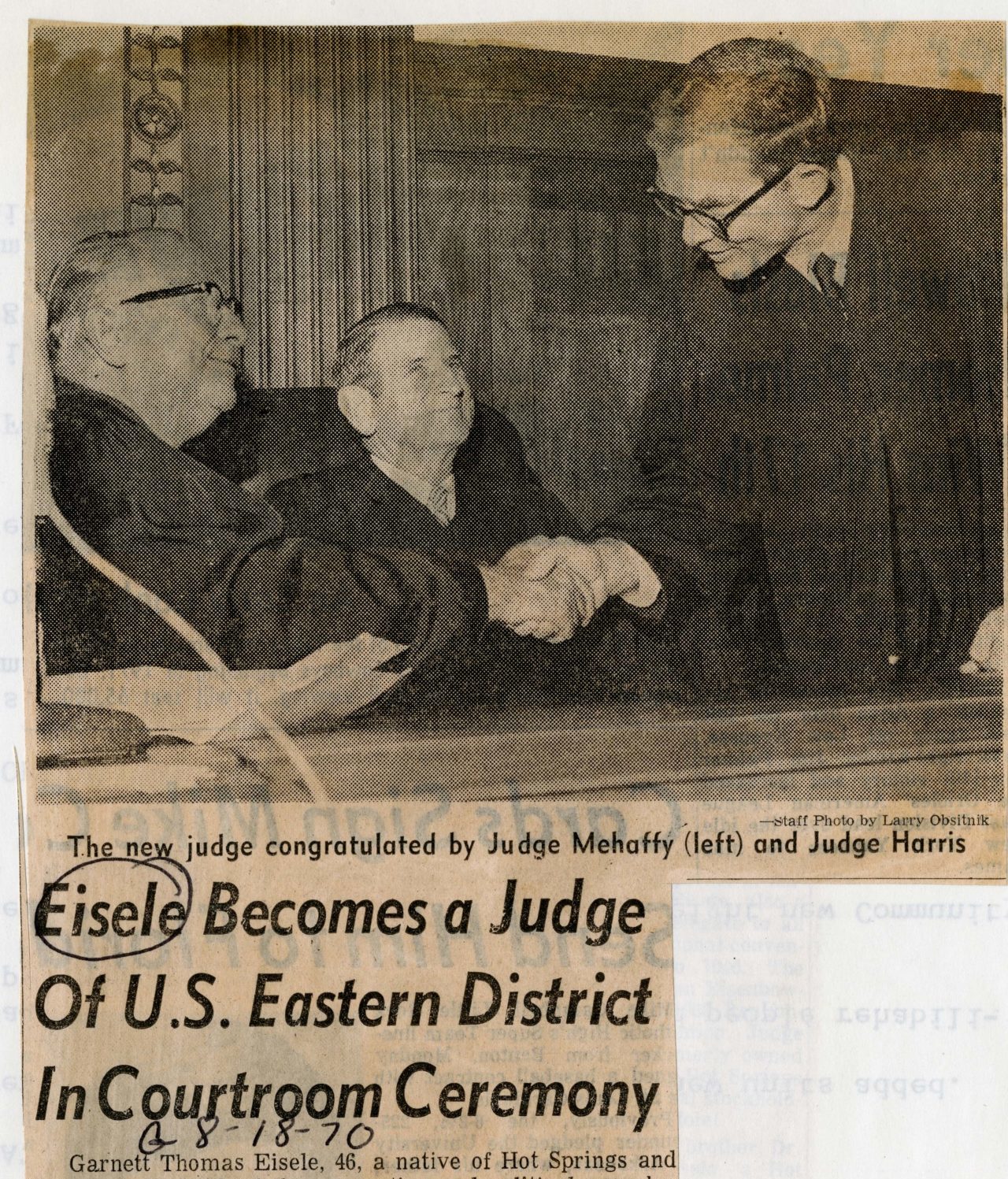
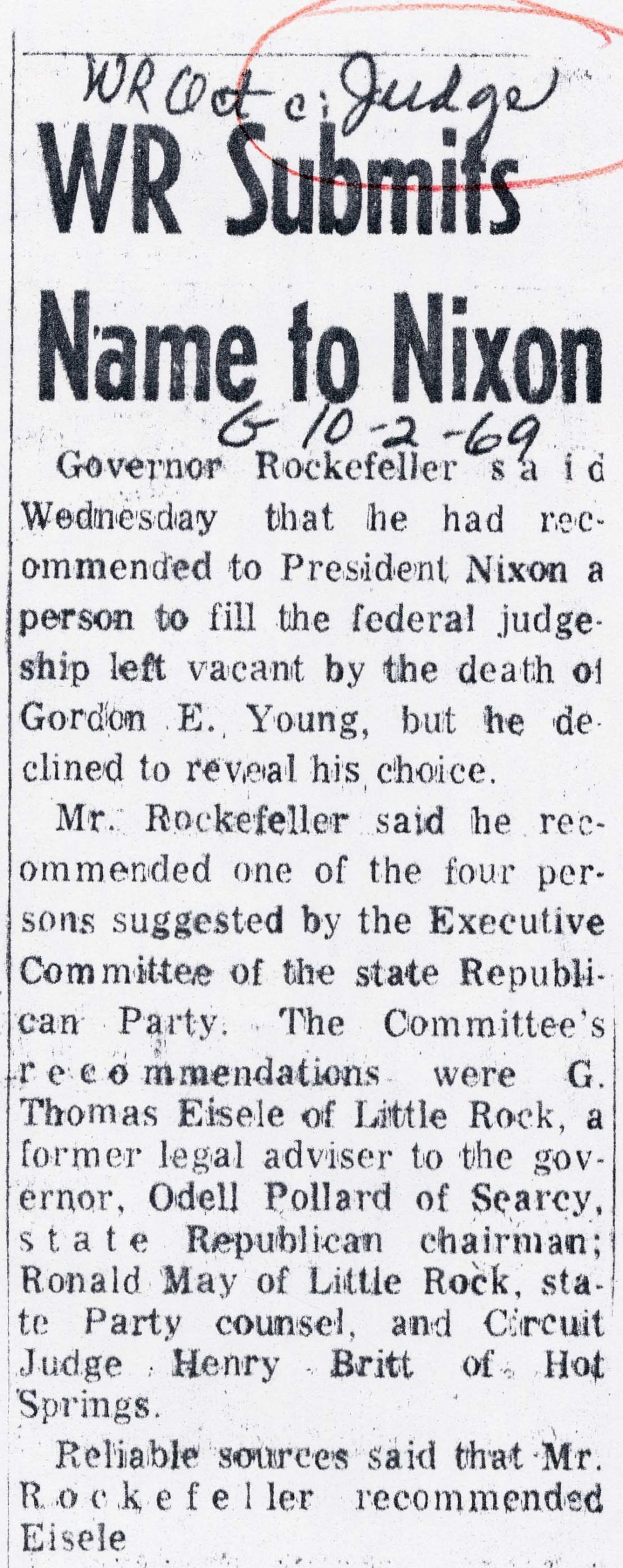

Legacy
Over the course of his career, Judge Eisele was involved with or ruled on cases which were important to Arkansas and the Nation.
His opinions and rulings were described as being routinely fair, just, and as conducted with dignity.
Below are a few highlights:
- 1960's Gene Wirges Libel Case
- 1970 Earl Race Riot Judgement
- Prision Reform work with Governor W.Rockefeller
- 1970 Nomination to U.S. Eastern District Court of Arkansas by Richard Nixon
- 1971 Gilliam Dam Judgement (Cossatot River)
- 1972 Phillips, et al. v. Weeks, et al.
- 1977 Association of Trial Lawyers Outstanding Federal Judge
- 1979 Approval of Environmental Study, allowing I-630 Interstate construction to proceed
- 1980- American Trial Lawyer's Best District Judge in the Eighth Circuit Court
- 1983 Barry Lee Fairchild Case
- UALR G. Thomas Eisele Endowment
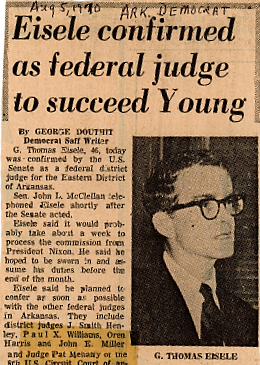
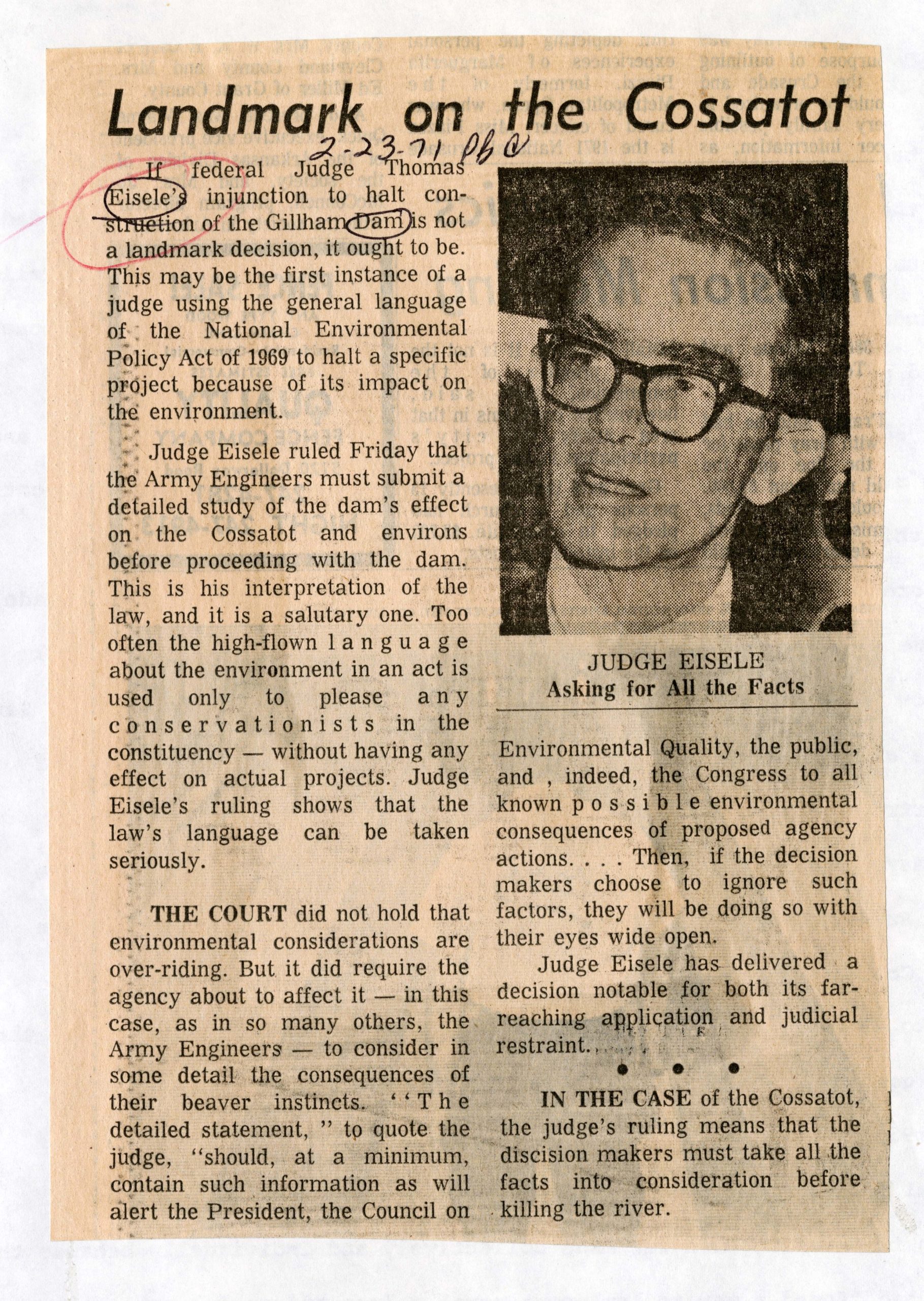
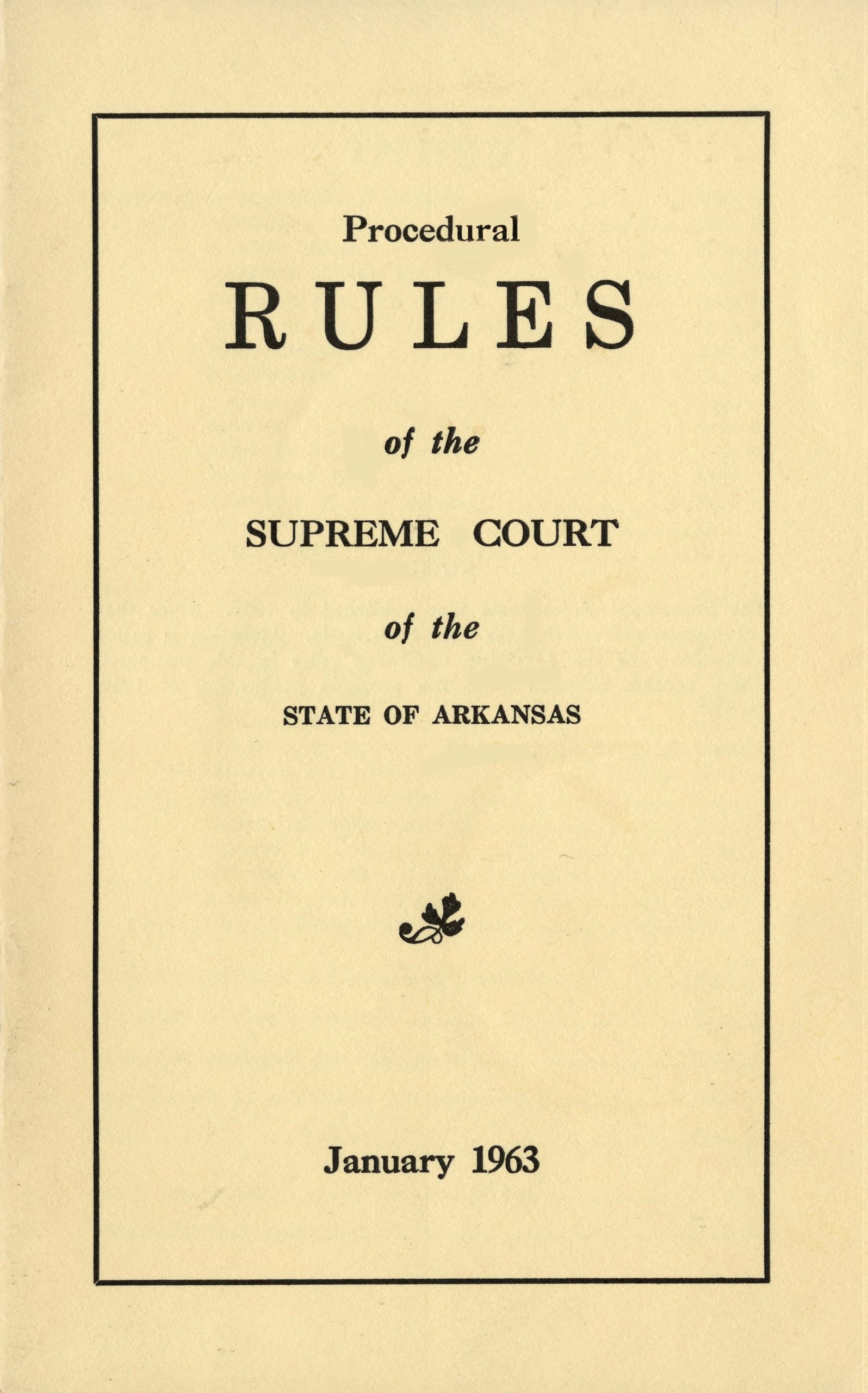
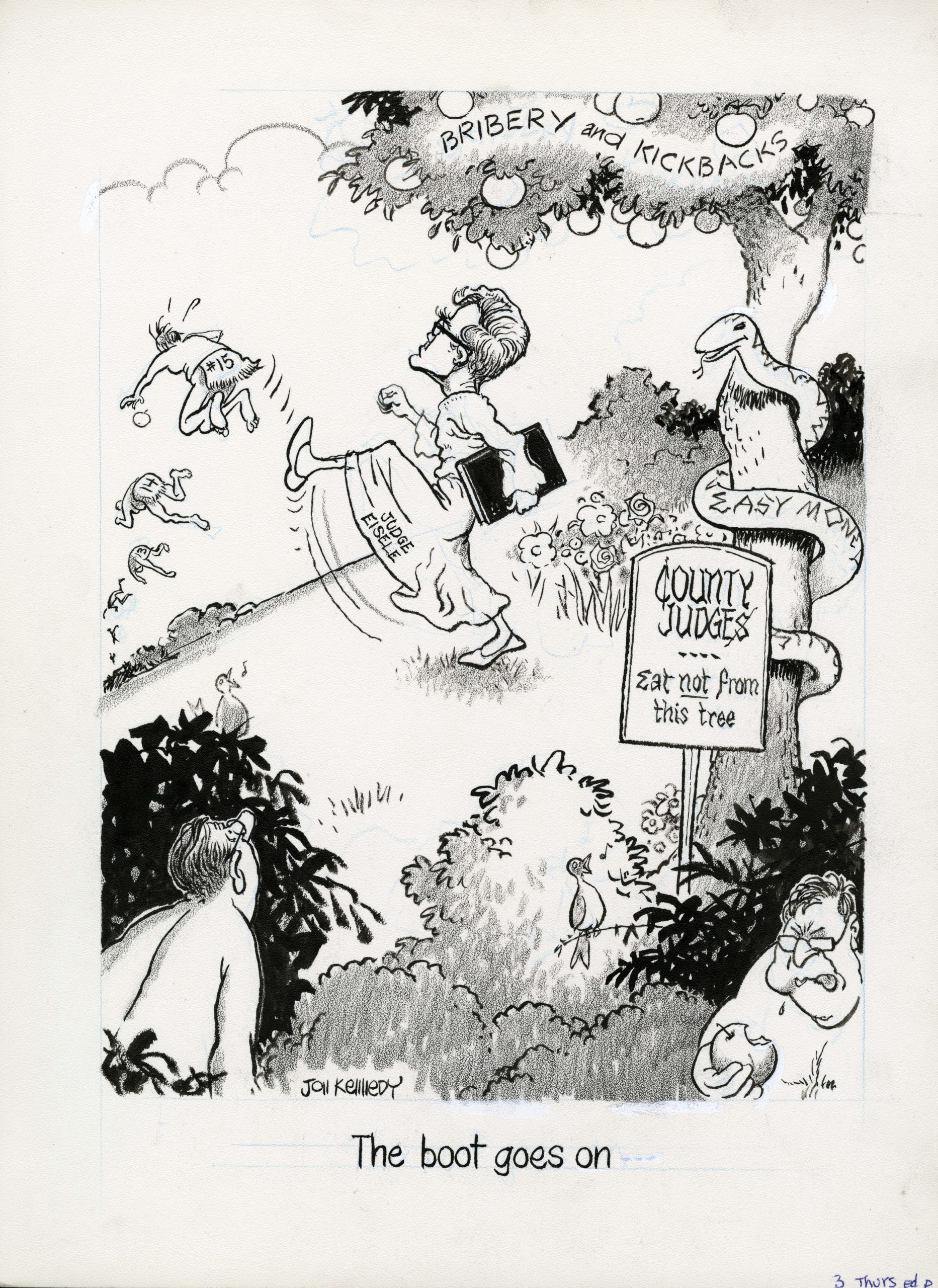

Bibliography
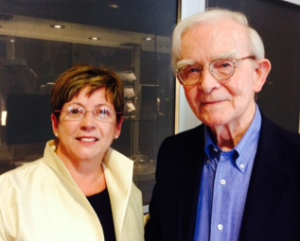
UALR Archive Sources:
Encyclopedia of Arkansas Articles:
Arkansas Online Article:
https://www.arkansasonline.com/news/2017/nov/27/federal-judge-eisele-94-dies-20171127/
Obituary:
